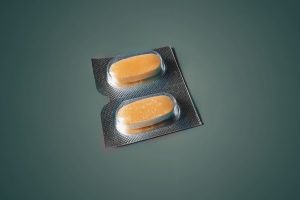Yeast infection, also known as candidiasis, is a common problem affecting men and women. It is caused by an overgrowth of yeast in the body, which can occur for several reasons, such as taking antibiotics or having a weakened immune system. When someone has an infection, their mind may race with questions about what they can and cannot do. For example, one common question is; can you have sex with a yeast infection?
This article will answer that question and provide other relevant information you need to know.
Can Sex Cause a Yeast Infection?
Though a yeast infection is not generally considered a sexually transmitted infection (STIs), just like bacterial vaginosis, sexual activity can undoubtedly lead to an overgrowth of yeast and cause infection.
The yeast that causes candidiasis, Candida Albicans, is present in small numbers in the vagina, mouth, and gut.
However, when the environment in these body parts changes, this yeast can grow out of control.
Sexual activity can alter the pH balance in the vagina, as well as introduce new bacteria that can lead to an overgrowth of yeast.
In addition, using condoms or diaphragms for birth control can also cause irritation, making infections more likely.
Can You Have Sex With a Yeast Infection?
Suppose someone or their partner has a yeast infection. In that case, it is important to avoid sexual activity until the condition is cured. Having sex while you or your partner have an infection can worsen symptoms and make the disease more difficult to treat.
In addition, sexual activity can spread the yeast overgrowth to other parts of the body, such as the mouth or vagina, causing more infection.
These are just some of the complications that can happen when someone engages in sexual intercourse when they have candidiasis:
- Pain or discomfort
- Itchiness and Swelling
- Transmission
- Painful urination
- Discharge
For all these reasons, it’s best to wait until the infection is cleared before engaging in sexual activities.
Can I Have Sex if I’m Treating a Yeast Infection?
Engaging in intercourse is not advised while treating a yeast infection.
Treatment of this infection typically involves antifungal medications, such as creams, ointments, tablets, or suppositories.
These medications can weaken condoms and damage latex, so it is essential to use another form of contraception if you are using them. In addition, sexual intercourse can also disrupt the natural balance of yeast and bacteria in the vagina, making an infection more likely to occur.
As a result, it is best to avoid sexual activity until the infection has completely healed. You should tell your partner if you have a candidiasis infection so they can get treatment.
Risks of having sex with a yeast infection
Having sex with a candidiasis infection can be risky.
Assuming one has this infection, there are potential risks associated with having sexual intercourse while infected.
For starters, candidiasis is often accompanied by itchiness and burning sensations in the affected area, which can be uncomfortable and may make sexual activity unpleasant.
In addition, having sex with an infection can increase your risk of contracting other sexually transmitted diseases, as the tissue in the affected area is more susceptible to tearing. If your partner has a yeast infection, there is also a risk of passing the infection back and forth between you.
Finally, candidiasis can sometimes lead to bladder infections. So, considering having sex while you have this infection, it’s crucial to weigh the risks and benefits before deciding.
Can You Get a Yeast Infection From Oral Sex?
Though vaginal yeast infections are most commonly associated with vaginal intercourse, getting this infection from oral sex is possible.
The bacteria and fungi from your partner’s mouth can spread to the vagina, labia, and clitoris, causing irritation and inflammation.
If your partner has oral thrush, the risk of vaginal yeast infections is even higher. In addition, kissing can transfer the infection from one person to another.
If I Have Sex With a Yeast Infection, What Should I Keep In Mind?
There are a few things to remember if you decide to have sex while dealing with candidiasis.
Avoid rough sex
Candidiasis can be very uncomfortable, so you may want to take things slowly.
Use lubrication
It is essential to use plenty of lubrication to reduce friction. You should avoid scented products, as they irritate the already sensitive tissue. Plus, don’t use lubricants containing glycerine since it disrupts the vaginal microbiome and worsens symptoms.
Wear a condom
Using condoms during sex can also help protect your partner from contracting an infection. However, consider that condoms can be irritable, so you may want to avoid them if irritation is already a problem.
If you have any other questions or concerns, talk to your doctor. They can give you the best advice for your specific situation.
How Long Should You Wait to Have Sex After a Yeast Infection?
Most yeast infections clear up within a week or two with the help of over-the-counter medications. However, some women experience recurrent infections. Therefore, you should generally wait at least a week after treatment before having sex to give your body time to restore its natural balance of yeast and bacteria.
What To Do If You Have Recurrent Yeast Infections
You may need preventive measures like probiotics or avoiding sugary foods if you have recurrent infections.
Probiotics help restore the balance of good and bad bacteria in your body, which can help curb the overgrowth of yeast. You can get probiotics from supplements or fermented foods like yogurt and sauerkraut. Avoiding sugary foods can also help prevent yeast infections because yeast thrives on sugar. Instead, focus on eating plenty of fresh fruits, vegetables, lean protein, and whole grains.
Can you have sex with a yeast infection using condoms?
Additionally, wearing a condom can decrease your chance of infection. Yeast thrives in warm, moist environments, so the vagina is the perfect place for yeast to grow.
Wearing a condom during sex can help protect you from infections by creating a barrier between your body and your partner’s. Additionally, it is essential to remember that you should only use condoms once; using a condom more than once can increase your risk of developing an infection.
Taking these preventive measures can help you avoid getting infections from yeast overgrowth in the future.
What Happens if You Have Sex With a Yeast Infection?
Having sex with a yeast infection can be incredibly uncomfortable and may also spread the condition to your partner. Symptoms of an infection include intense itching, burning, and redness. In addition, since sex creates friction, it can exacerbate these symptoms and make the condition more painful.
Having sex with a yeast infection can also lead to other problems, such as UTIs.
The yeast that causes candidiasis can also cause urinary tract infections (UTIs) by entering the urethra and multiplying in the bladder. This can lead to symptoms such as pain and burning during urination, cloudy urine, and a strong urge to urinate even when the bladder is empty.
If left untreated, UTIs can cause kidney damage. Therefore, it is vital to see a healthcare provider for a yeast infection treatment if you think you have one before any further complications develop.
Frequently Asked Questions
Although vaginal candidiasis is not an STI, Sex can still be painful or uncomfortable if you have one.
The friction caused by sex can irritate the already inflamed tissues in and around the vagina, causing even more discomfort. The itch and burn associated with the infection can also make any sexual activity feel unbearable.
Yes, men can get yeast infections, also known as Balanitis. However, it is much less common for men than for women. One of the men’s most common yeast infection symptoms is inflammation of the head of the penis or Balanitis. This can cause redness, itching, and burning. It can also cause a discharge from the penis that may be white, thick, and odorless.
- Burning sensation during urination
- Redness and inflammation of the glans (head) of the penis
- Pain or discomfort during sexual intercourse
Some men can be more at risk of getting infected with Balanitis due to some factors. Such men include:
- Uncircumcised men
- Men with diabetes
- Men who are obese or overweight
- Men with a weakened immune system
If you have any of the above risk factors, it’s essential to keep your penis clean. This means regularly washing with soap and water and drying the area well afterward. You should also avoid using harsh soaps or other irritants on your penis.
If you develop Balanitis, it’s essential to see a doctor so they can treat the underlying cause. Over-the-counter creams can also help to soothe irritation and pain. In most cases, Balanitis is a minor condition that will resolve independently. However, if left untreated, it can lead to more severe complications like inflammation of the urethra (urethritis) or scarring of the foreskin (balanoposthitis).
In any case, getting treatment is essential, so the condition doesn’t become chronic.
There are a few possible explanations if you constantly get yeast infections after sex.
It could be that your partner has this infection and is passing it to you. Candidiasis infections are common, and most people will experience at least one in their lifetime. However, some people are more susceptible to them than others.
If you’re getting infections frequently, it might be worth visiting a doctor to see if they can do anything to prevent them.
Alternatively, it could be that something about sex (including the way you clean yourself afterward) is triggering your yeast overgrowth. Yeast thrives in warm, moist environments. So if you’re not cleaning yourself properly after sex, you may be providing the perfect conditions for the infection to take hold.
Again, this is something that you might want to discuss with a doctor or a sexual health expert.
Your symptoms may still linger even after the infection has cleared. This is normal and usually improves within a few days to a week. Talk to your doctor if your symptoms don’t go away or get worse.
They may prescribe antifungal medication to help clear up any remaining symptoms. In the meantime, you can do a few things to ease your symptoms.
- Wear loose, breathable clothing
- Avoid irritants like douches, feminine hygiene sprays, and scented pads or tampons.
- Wash your vulva with plain water
- Apply a soothing cream or ointment to the affected area
- Take an over-the-counter pain reliever if you’re in pain
If the pain and itchiness still don’t go away, it’s best to see your doctor for treatment. You may have other conditions causing your symptoms or need a more effective medication.
Sperm can throw off the natural pH balance in the vagina, leading to vaginal candidiasis. This is because sperm is alkaline, while the vagina is acidic.
When there is an imbalance in pH, it can create an environment conducive to yeast growth. Additionally, sperm can provide a source of food for yeast. Therefore, having unprotected sex with someone who has this infection can also increase your risk of developing one.
It is essential to note that not all forms of sexual activity will lead to a yeast infection.
For example, using a condom or dental dam during sexual activities can help to protect you from this type of infection. However, suppose you experience itching, burning, and discharge symptoms. In that case, it is essential to see a healthcare provider for treatment.
If your girlfriend has vaginal candidiasis, you should encourage her to see a doctor or other healthcare provider to get treated.
It is also best to abstain from sex to avoid spreading the infection between each other.





